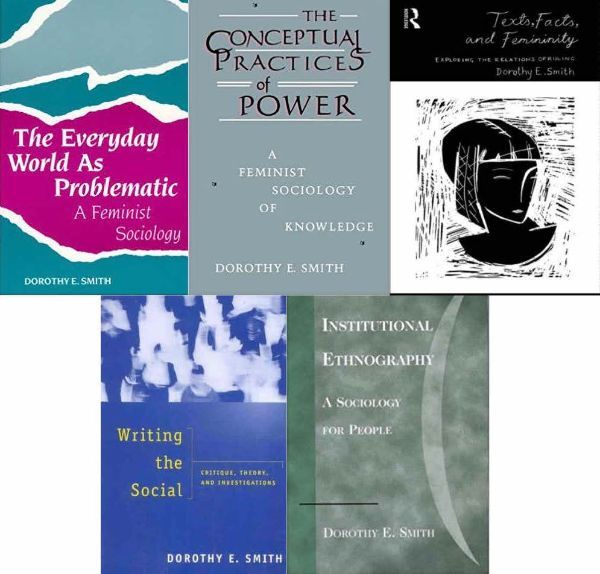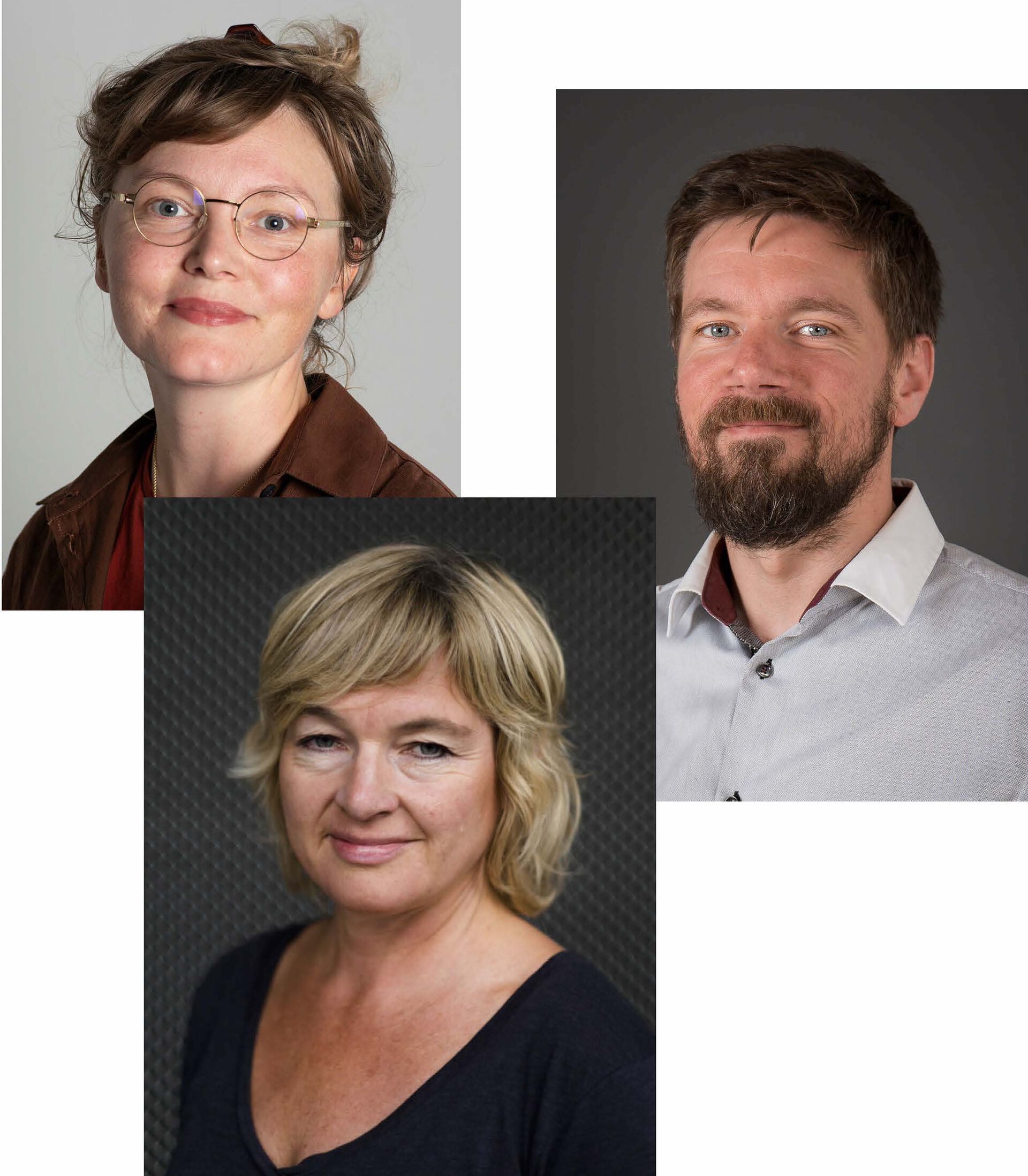 Book launch seminar
Book launch seminar
This book launch seminar celebrates Rebecca Lund and Ann C. E. Nilsen's most recent book publication, and includes papers by Karin Widerberg and Marjorie DeVault, as well as round table discussion with contributing authors.
More information about this book launch.
The book explicates the Nordic response to Institutional Ethnography, showing how it has been adapted and interpreted within the theoretical and methodological landscape of social scientific research in the region, as well as the institutional particularities of the Nordic welfare state. Addressing the main topics of concern in the Nordic context, together with the way in which research is undertaken, the authors show how Institutional Ethnography is combined with different theories and methodologies in order to address particular problematics, as well as examining its standing in relation to contemporary research policy and university reforms. With both theoretical and empirical chapters, this book will appeal to scholars and students of sociology, professional studies and anthropology with interests in research methods and the Nordic region.
This book offers a very fascinating collection of chapters that represent Nordic research in the Institutional Ethnography tradition. It provides a very impressive view of the network of scholars involved in such research, and also of the range and quality of their work. - Marjorie DeVault
More information about the book.
Increased focus on feminist knowledge production and methodology
Research based on Institutional Ethnography is one of several focus areas at the Centre for Gender Research this year. The book Institutional Ethnography in the Nordic Region is part of a larger focus on feminist knowledge production and methodology, through the above mentioned book launch seminar, a PhD-course, two ongoing research projects and conference sessions. All under the auspices of Postdoctoral Research Fellow Rebecca Lund.
 Rebecca Lund holds a PhD in Organization Studies, from Aalto University (Finland), and was awarded Best Doctoral Thesis 2015 by the Doctoral Committee. She has had several Postdoctoral Research Fellowships: Marie Skłodowska-Curie Fellowship (Aarhus University, 2015-2017), Academy of Finland Fellowship (Tampere University, 2017-2019), and currently, at the Centre for Gender Research (University of Oslo, 2019-). Lund has also been involved in several Balanse-projects: Balanseprosjektet (University of Agder, 2015-2018), FEMPROF: Institutional discovery and change for a more equal and diverse academy (University of Agder, 2019-2022) and Equality and excellence in sustainable balance? Gender, love and desire for knowledge in the competitive university (University of Oslo, 2019-2022). The red thread throughout Lund's research is Institutional Ethnography and Dorothy E. Smith.
Rebecca Lund holds a PhD in Organization Studies, from Aalto University (Finland), and was awarded Best Doctoral Thesis 2015 by the Doctoral Committee. She has had several Postdoctoral Research Fellowships: Marie Skłodowska-Curie Fellowship (Aarhus University, 2015-2017), Academy of Finland Fellowship (Tampere University, 2017-2019), and currently, at the Centre for Gender Research (University of Oslo, 2019-). Lund has also been involved in several Balanse-projects: Balanseprosjektet (University of Agder, 2015-2018), FEMPROF: Institutional discovery and change for a more equal and diverse academy (University of Agder, 2019-2022) and Equality and excellence in sustainable balance? Gender, love and desire for knowledge in the competitive university (University of Oslo, 2019-2022). The red thread throughout Lund's research is Institutional Ethnography and Dorothy E. Smith.
Lund is currently the editor of NORA - Nordic Journal of Feminist and Gender Research (2018-2020). She also takes over the chair of the Nordic Association of Institutional Ethnography in August.
More information about Rebecca Lund.
What is Institutional Ethnography?
Institutional Ethnography is a method-of-inquiry that is developed in response to the theoretically driven mainstream sociology. It starts from people’s everyday experiences, and works from there to discover how the social is organized. Starting from experience is a central step in challenging taken-for-granted assumptions and relations of power, whilst responding critically to the neoliberal cost-benefit ideology that has come to permeate welfare institutions and the research sector.
Institutional Ethnography was originally formulated by the Canadian sociologist Dorothy E. Smith.
The founder – Dorothy E. Smith
Dorothy E. Smith's experiences as single mother, sociologist and activist – engaged in the 70’s and 80’s American and Canadian women’s movement – became the starting point for developing a sociology that explored and challenged power and institutional processes from a standpoint in everyday experience (Smith 1987, 1991, 1993, 1998, 2005). This includes interrogating women's own participation in reproducing the masculine, patriarchal and capitalist system they were critiquing, and developing a language and discourse with which particular experience could be spoken.

Smith began developing a critique of mainstream sociology: first in the article Women’s perspective as a Radical Critique of Sociology (1974); and later on, in the book The Everyday World as Problematic: A Feminist Sociology (1987), resulting in her status as the founder of standpoint feminism (Harding 1992). Here, Smith pinpoints the need for starting from women’s experience, problematizing the practices and explicating the institutional and historical processes that reproduces certain knowledge as unproblematic.
Smith’s theorization of standpoint and experience has resulted in a great deal of critique, in particular from poststructuralist/-modernist feminist camps throughout the 90’s. This can be illustrated through a debate about standpoint feminism in the journal Signs: In the article Truth and Method: Feminist Standpoint Theory Revisited (1997), Susan Hekman argues that Smiths standpoint theory is essentialising and based on a naïve concept of experience. And assumes that women have a particular experience (as a result of mothering), which gives them epistemic privilege in terms of identifying objectifying processes and ideologies. In the same way, Lois McNay (2000) later criticized Smiths standpoint theory for being insensitive to the complexity of power and the ways in which people are shaped in diverging ways within institutional processes. McNay further problematizes how epistemic privilege is ascribed based on experience. Experience must, she says, be understood as relational rather than as ontological.
Rebecca Lund does not agree with McNay´s critique: Smith's understanding of experience is embodied, dialogical and social, drawing on Marx, Bahktin, Volosinov, Mead, Merleau-Ponty and Schutz. The embodied experience, understood as our actual activities, is the point of entry for pointing towards the social relations that organise doings and sayings. Smiths concept of power is dynamic – both relational and material – and as such allows space for agency.
In response to Hekman´s critique, Lund point towards Smith's later development of standpoint and experience: The epistemic privilege ascribed a particular standpoint is neither automatic nor prematurely assigned on the basis of belonging to a social category. The epistemic privilege is always empirically and contextually justified. Smith herself insists that her early approach to problematizing gendered power relations is not based on an essentialist understanding of “woman/women” or “women’s experience” (Smith 2005). Difference within and among women is embedded in Smiths notion of standpoint. The category woman/women was first and foremost understood as a political concept for organizing resistance towards the explicitly or implicitly universalizing masculine, as a form of strategic essentialism (Spivak 1988).
In principle, feminist sociology can be open for all that can shed light on dissonance between institutional representations and lived experience. In Institutional Ethnography: Sociology for People (Smith 2005), exploration does not start from the standpoint of woman/women, but from the standpoint of people and moves from there in order to discover how it is shaped in vertical and horizontal processes, including gendered and intersectional relations, ideologies and discourses.
Epistemic injustice in academia: Class, Race and Gender in feminist knowledge production
In her Postdoctoral project, Rebecca Lund seeks to unpack gendered, raced and classed tensions within critical feminist knowledge production, in order to explore how these contribute to the reproduction of social inequality. The project explicates how the historical, social and political processes – within which feminist scholarship(s) is embedded – shape whose and which knowledge is deemed legitimate/illegitimate. It asks: what and whose knowledge achieves status as credible, valuable and legitimate, why is this so, how does it become the subject of ongoing struggles and a source of the reproduction of inequality within academia. These issues will be addressed through an analysis of feminist academics experiences of engaging in feminist knowledge production within the specific historical, social and disciplinary contexts.
More information about this Postdoctoral project.
Equality and excellence in sustainable balance? Gender, love and desire for knowledge in the competitive university
This NFR-project, led by Helene Aarseth in collaboration with Rebecca Lund and Jørn Ljunggren, examines how different types of knowledge desires, associated behaviors and epistemological orientations are nurtured and hindered in the meeting with a more market-oriented and competitive university. It explores the gendered and classed dimensions of epistemic orientations, and how these are positioned within the contemporary university. Data will be produced in departments that are characterised by internal epistemic tensions between analytical and interpretive orientations.
The project is funded by the Research Council of Norway's work programme Gender Balance in Senior Positions and Research Management (BALANSE).
More information about this NFR-project.
Editors' pick
Rebecca Lund and Janne Tienari’s article Passion, care, and eros in the gendered neoliberal university (2019) was recently selected among the Editors’ Picks of articles on Feminism and Organization, published in the journal Organization over the last 20 years.
More information about the article and its acknowledgements.
PhD course
This PhD-course, offered by the Centre for Gender Research, gives an introduction to Institutional Ethnography. It will explore core concepts of Institutional Ethnography, and engage with methodological tools and procedures for exploring organised social interaction.
More information about this PhD-course.
30th Nordic Sociological Association Conference – NSA2020
In collaboration with Ann C. E. Nilsen and May-Linda Magnussen, Rebecca Lund organise four sessions dedicated to Institutional Ethnography. One session will be a panel debate on the future of Institutional Ethnography in the contemporary university, while the three additional sessions will dedicated to paper presentations by Nordic IE scholars.
